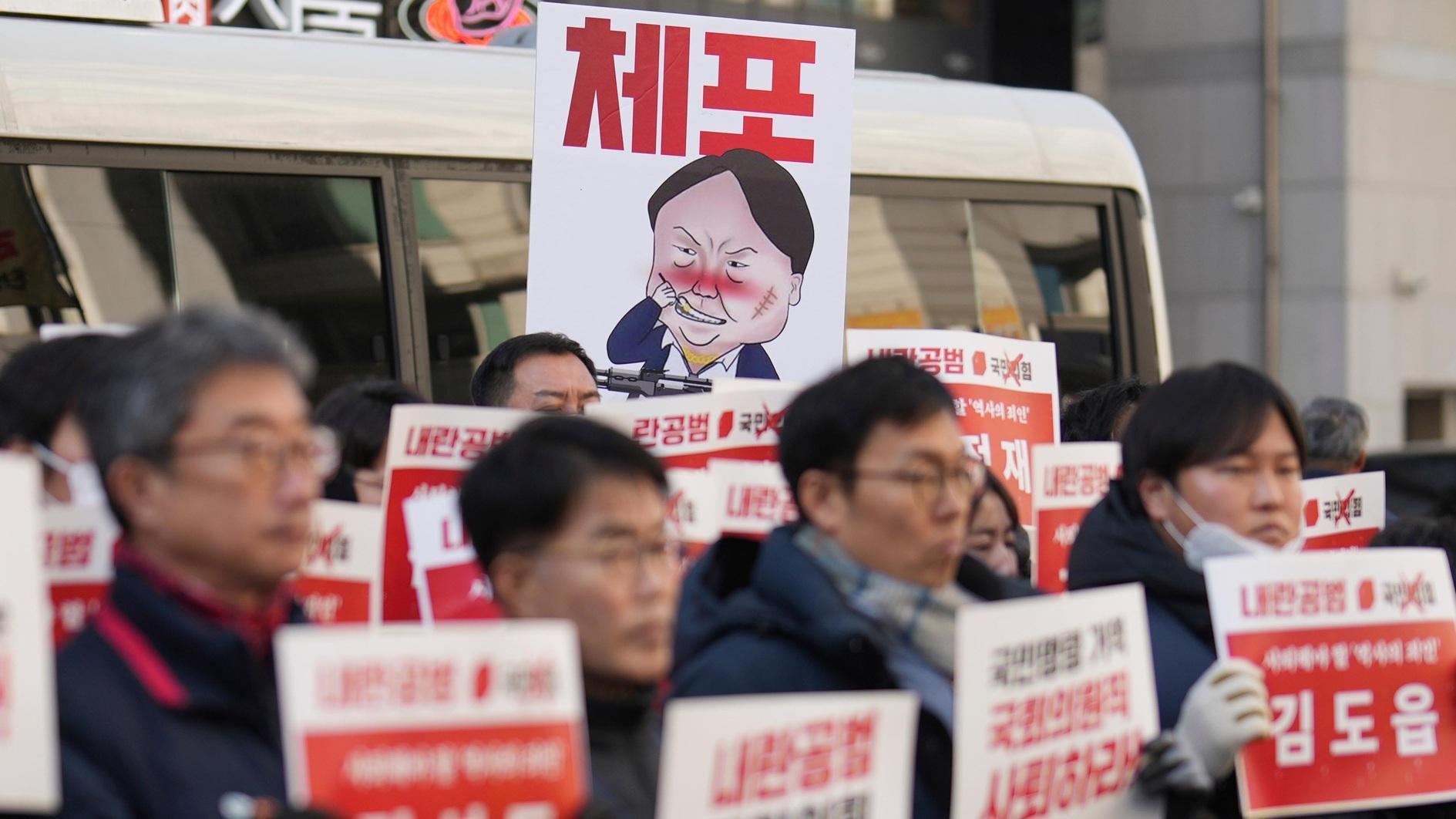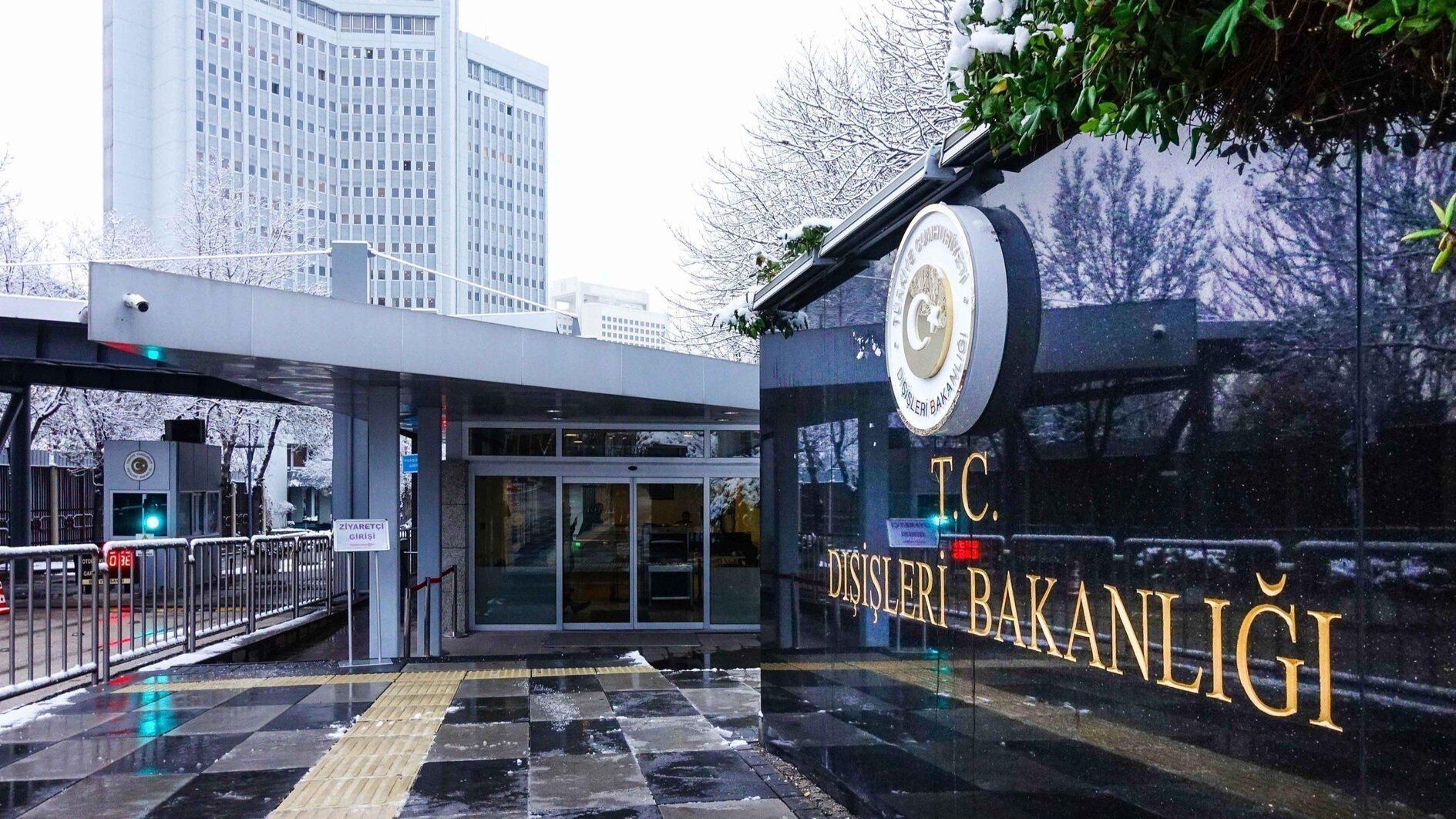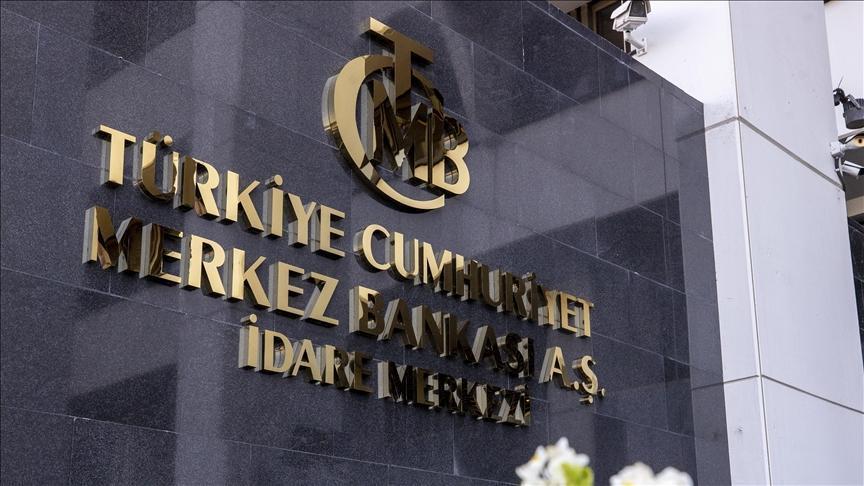South Korea opposition accuse ruling party of 'second coup'
SEOUL

A caricature depicting South Korean President Yoon Suk Yeol is seen in front of the ruling People Power Party's head office in Seoul, South Korea, Monday, Dec. 9, 2024.
South Korea's opposition on Monday accused the ruling party of staging a "second coup" by clinging to power and refusing to impeach President Yoon Suk Yeol over his declaration of martial law.
Yoon plunged the country into political chaos with his attempt to scrap civilian rule, which lasted just six hours after lawmakers scuffled with soldiers in the parliament building and managed to vote the measure down, forcing Yoon into an embarrassing U-turn.
The president and a slew of top officials are now being investigated for insurrection, but a bid to impeach Yoon failed Saturday after a boycott by the ruling party, who claim the wildly unpopular leader has agreed to hand power to the prime minister and party chief.
"This is an unlawful, unconstitutional act of a second insurrection and a second coup," Democratic Party floor leader Park Chan-dae said, urging the ruling party to "stop it immediately".
Under South Korea's constitution, the president remains head of government and commander in chief of the army unless he or she is incapacitated, resigns or steps down.
In such a case, power would be handed to the prime minister on an interim basis, until elections could be held.
Claiming that Yoon can remain in office but has delegated his powers to the prime minister and leader of his ruling People Power Party — who is not an elected official — is "a blatant constitutional violation with no legal basis," Park said.
"Their attitude of placing themselves above the Constitution mirrors that of insurrectionist Yoon Suk Yeol," he added.
Investigators have already detained the former defense minister, raided his offices, slapped a host of top officials with travel bans, and on Monday called in the general who was made martial law commander for further questioning.
Yoon himself could be called in for questioning, police said Monday, adding that they are "considering" whether to ban him from traveling, as their investigation gathered speed.
"There are no human or physical restrictions to the subject of an investigation," said Woo Jong-soo, head of the National Investigation Headquarters of the National Police Agency.
Police will investigate "in accordance with the law and principles — without any exceptions".
Power vacuum?
The defense ministry confirmed Monday that the embattled Yoon remained at the head of the country's security apparatus, despite the apparent power vacuum in the country — which remains technically at war with the nuclear-armed North.
"Legally, (control of military forces) currently lies with the commander in chief," defense ministry spokesperson Jeon Ha-kyou said.
Yoon, 63, has apologised for "anxiety and inconvenience" caused by his declaration of martial law but has not stepped down, saying instead he would entrust decisions about his fate to his party — and accept all political and legal responsibility for the martial law fiasco.
There is no constitutional basis supporting the ruling party's claim that Yoon can stay in office but hand over his power to unelected party officials, said Kim Hae-won, a constitutional law professor at Pusan National University Law School.
"It seems to resemble an unconstitutional soft coup," he told AFP.
"If there are issues with the President, there are ways laid out in the Constitution such as suspending the president from his duties, and then move on to proceedings set out in the Constitution, such as impeachment," he said.
The opposition has already said they will try again to impeach the president, with leader Lee Jae-myung saying another vote would be held on Saturday.
Huge crowds are expected to gather again outside the National Assembly building.
Yoon's approval rating hit 11 percent, a historic low for the unpopular president, according to a new Gallup poll commissioned by local media.
















